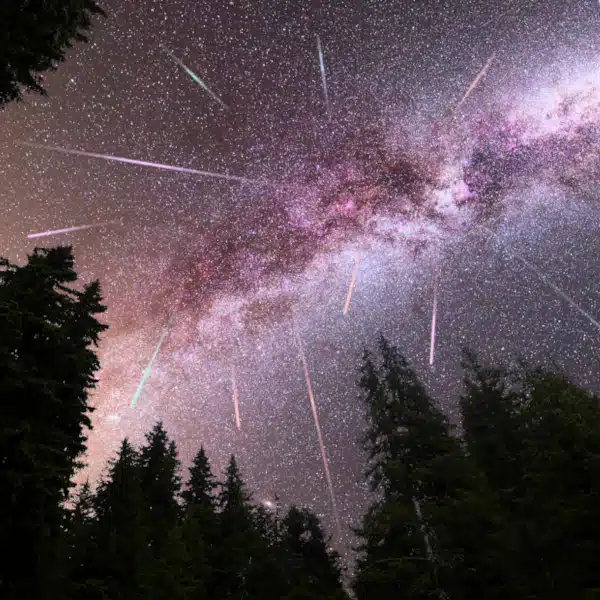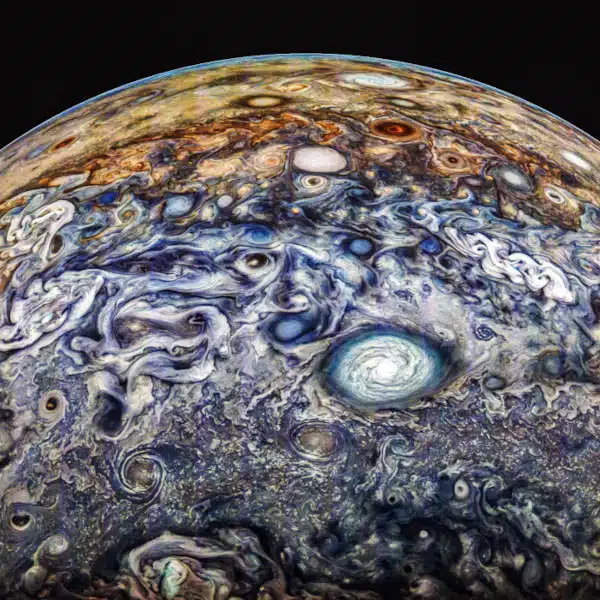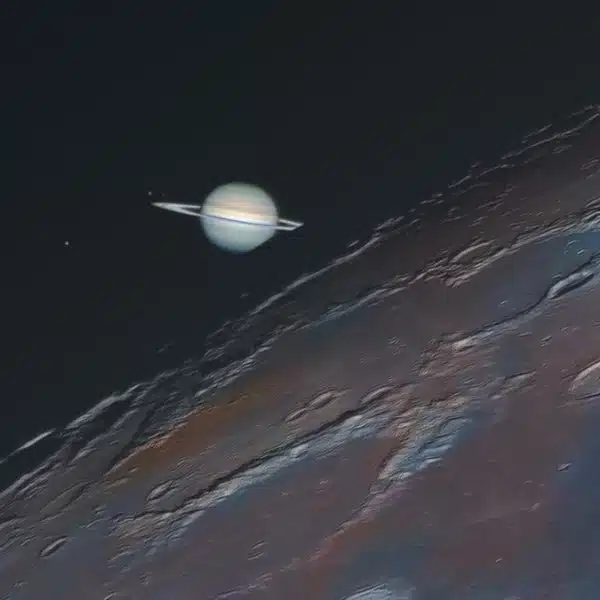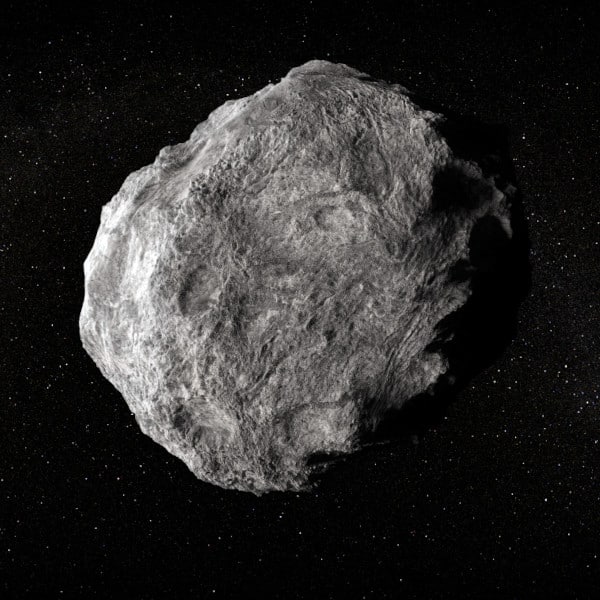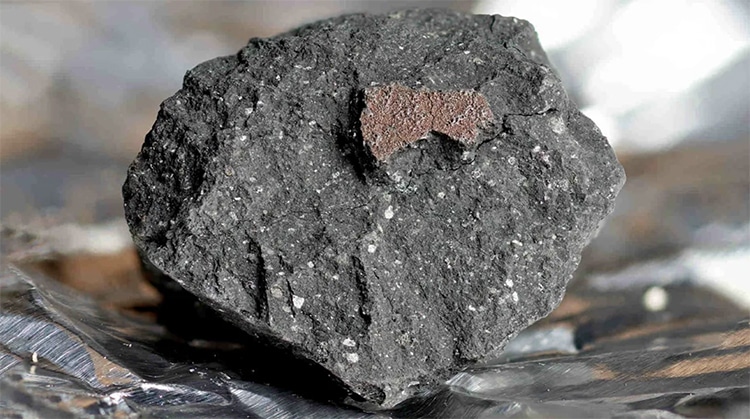
The 4.6-billion-year-old meteorite. (Photo: Natural History Museum)
Water is a scientific enigma. How did Earth develop its oceans? Do other planets have water? Space exploration may help answer these questions, but others come crashing to Earth in strokes of celestial inspiration. The Whinchcombe meteorite—a meteor that made it through Earth's atmosphere to land in Gloucestershire, England in 2021—is already providing answers. It contains extra-terrestrial water and organic compounds that shed light on the origin of Earth’s oceans.
The meteorite is a chunk of 4.6 billion-year-old space rock. It likely dislodged from an asteroid near Jupiter and traveled to Earth within the last million years. The crash landing on a Gloucestershire driveway was fiery, captured on camera by 16 cameras coordinated by the UK Fireball Alliance (UKFAll). Scientists were able to quickly recover and preserve the meteorite for study. Their findings have been published in Science Advances. The meteorite is, surprisingly, a rare CM carbonaceous chondrite. It contains approximately two percent carbon by weight and is the first of this type to fall in the UK.
Chemical analysis demonstrated the meteorite has a composition of 11% extra-terrestrial water. The hydrogen isotope ratio is similar to our Earth's water. There is no liquid in the rock, rather the water is bound in compounds formed near the origin of the solar system. The meteorite also contains extra-terrestrial amino acids. These prebiotic molecules are essential to life. These findings further reinforce the scientific belief that carbonaceous asteroids delivered some of the ingredients of life to Earth.
Dr. Luke Daly, of the Planetary Geoscience at the University of Glasgow and author of the paper, says in a statement, “One of the biggest questions asked of the scientific community is how did we get here? This analysis on the Winchcombe meteorite gives insight into how the Earth came to have water–the source of so much life. Researchers will continue to work on this specimen for years to come, unlocking more secrets into the origins of our solar system.”
Dr. Ashley King of the Natural History Museum and another author, adds, “The rapid retrieval and curation of Winchcombe make it one of the most pristine meteorites available for analysis, offering scientists a tantalizing glimpse back through time to the original composition of the solar system 4.6 billion-years-ago.”
The Winchcombe meteorite has revealed secrets to how the “starter” materials for Earth's oceans arrived on this planet.
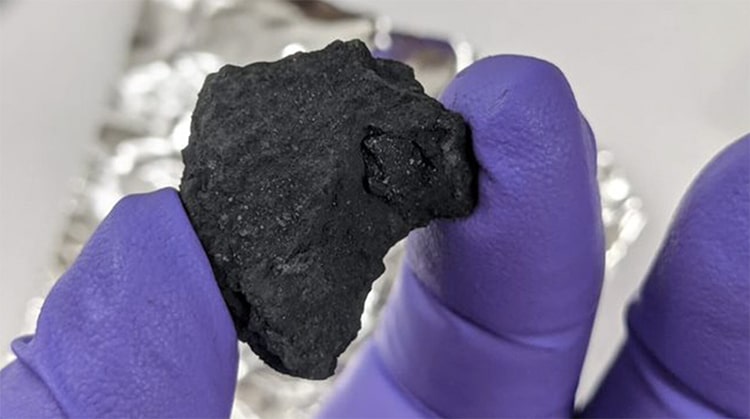
A fragment of meteorite. (Photo: King et al./Science Advances)
While the celestial rock is 4.6 billion years old, it crashed into Earth in 2021 and was quickly recovered and preserved.
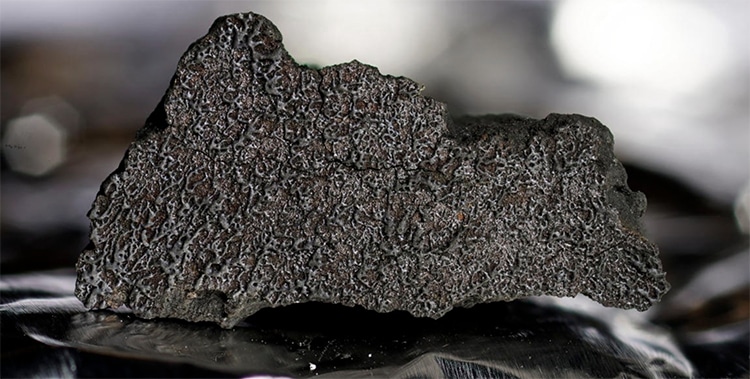
A fragment of the Winchcome meteorite. (Photo: Trustees of the Natural History Museum)
h/t: [Interesting Engineering]
Related Articles:
10 Fascinating Facts About the Moon, Earth’s Nearest Neighbor
NASA’s DART Mission Successfully Moved a Stadium-Sized Asteroid’s Orbit
Scientists Develop Motor To Make Oxygen on Mars To Support Astronaut Life
Astronomers Discover an Ocean-Covered “Super-Earth” Exoplanet











































































